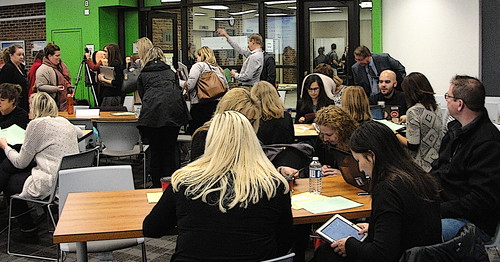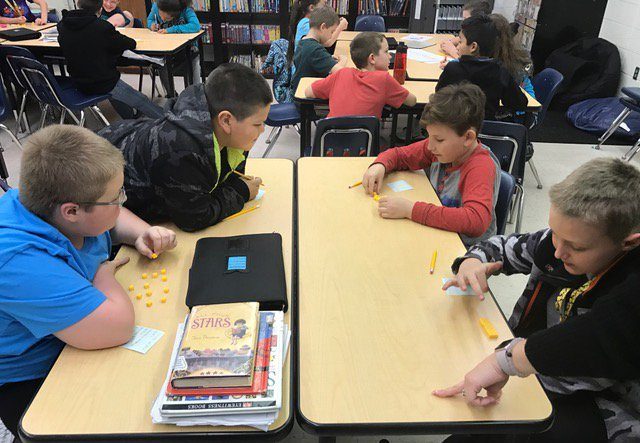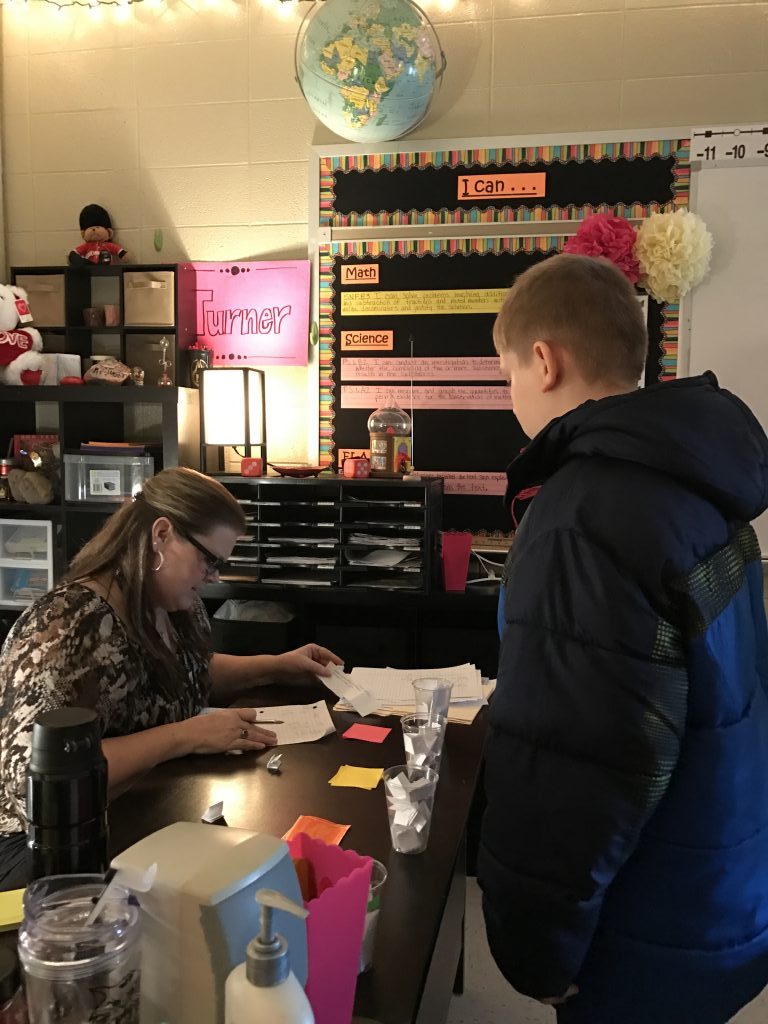I began my Edublogs Club adventure last week writing Listicles, and it was the perfect place for me to start. It was fun to think about the procedures that keep my classroom moving forward and to share some positive ideas with others. After some reflection on the events of this week l have decided to take a step backward to topic #6, and write about challenging situations. The challenges that I am writing about today are not related to my students, nor to the happenings in my own classroom, although many challenges do arise there. Rather, today the focus is on challenges in building positive working relationships with our peers.
While teaching may not be my first career, I have been at it for quite a few years and have learned a lot during that time. Like most educators, I work hard to put that knowledge to good use in all areas of my career. I am continuously seeking new ideas and techniques that will bring out the best in my students. That’s simply good practice, right? However, sometimes we can get so wrapped up in ourselves and what WE can do for our students, that we forget there are other people in our buildings who need support as well . . . our fellow teachers. Ken Whytock via Compfight
at it for quite a few years and have learned a lot during that time. Like most educators, I work hard to put that knowledge to good use in all areas of my career. I am continuously seeking new ideas and techniques that will bring out the best in my students. That’s simply good practice, right? However, sometimes we can get so wrapped up in ourselves and what WE can do for our students, that we forget there are other people in our buildings who need support as well . . . our fellow teachers. Ken Whytock via Compfight
I do care about my colleagues, and since entering the world of education I have done my best to be a good team member. Most who have worked with me would probably agree to that. However, a recent conversation with my pod members about how the rest of our grade level teachers view us made me step back and take a good long look at who I am as a person, teacher, and teammate. Not only that, it made me wonder just who our pod is in relation to the rest of our grade level team. Are we solid members of our teaching pack; are we leaders; or are we something else? The defining moments, in my mind, began last year when our pod decided that we needed to “make a difference” in our school.
The members in our pod had many conversations back then about our school and the need for us to build an inspiring place for our kids, teaching them to care about the world that we live in. We were willing to put in the extra time and effort necessary to make things happen, and we unified as a group to get things done. That’s our pod, but we are not the only pod in fifth grade. As we thought of projects along the way, we invited the other pods to join us, but for various reasons that did not happen. Rather than giving up on the idea, though, we went on with our plans because, in our minds, we were willing to do whatever we could for our kids. If others did not wish to participate that was their choice, but it wouldn’t stop us. We designed a few community projects that, naturally, brought some attention to the pod, and our experiences were very rewarding. To us, the news coverage was a good thing for our grade level and our entire school. What’s more, we felt that we had offered to include others and after some time we even became a bit frustrated by their lack of desire to go “above and beyond” with us, but why didn’t they want to join us?!
Recently we found out the answer to that question, as it was brought to our attention that the rest of the grade level team’s opinion of us was not quite as favorable as our own. But we are workers, we are doers! What?! Our pod just wants to make our own decisions and do our own thing rather than including everyone else?! Where did that come from? We tried to include others! I was shocked, but that conversation led me to step back and take a balcony view of what was going on, and I painfully realized that we may not have been acting as good teammates at all. While we saw ourselves as leading by example, others saw a group that was saying to them, “We are so smart that we have identified and figured out how to fix the problems that we have found in this place and we are gracing you with an invitation to join us.” Let’s be honest here. We did not come together with the entire team to identify our needs develop a plan together. No, in our infinite wisdom we had both the “problem” and “solution” all figured out on our own, and were insulted when the rest of the group didn’t just eat it up. Where is the efficacy in that? If we had been true leaders we would have taken our concerns to the group and designed a vision together. It’s okay to be the starter, so to speak; but often, when starters meet resistance it is because others need encouragement and support. Did we give that, or did we give judgment? What they need is to feel that they have a voice, and their wisdom does matter. When that is not part of the process, the would be starters are just seen as pushy, and jealousy ensues at any attention they get for their efforts. Perhaps if we had truly wanted to create a great atmosphere, we should have begun by building strong relationships with our fellow teachers.
How did I lose sight of that? The way that I make others feel has always been on the forefront of my mind; it is a big part of who I am, but in my excitement over what we were doing with our kids, I had forgotten. I don’t want to blow this our of proportion, as our team has not reached the point of dysfunction, by any means. Yet now is the time to support and encourage one another, because if we don’t the divide will only grow wider. We can do great things together, all of us, and I am confident that we will. Yet we need to acknowledge where we missed the mark in the past and do all that we can to truly become a team.




